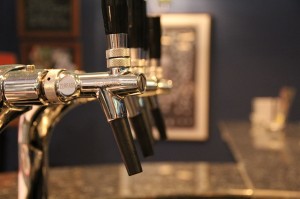The Massachusetts Alcoholic Beverages Control Commission (“ABCC” or “Commission”) recently published five new decisions:
First, the ABCC ruled on an appeal from a Chicopee decision to deny a §15 all alcohol license transfer. In the appeal the appellant, Mormax Corporation d/b/a BJ’s Wholesalers, argued that the town’s decision to deny a license transferred from Winn Liquors, Inc. was arbitrary and capricious.
After a Local Board hearing on May 17, 2012, Chicopee cited two reasons for denying the transfer application: 1) the lack of public need or interest for another liquor license in the immediate area; and 2) an overflow crowd of individuals expressing opposition to the transfer at the public hearing.
The Commission found as the appellant argued that the decision from the local board was inadequate as it lacked legally sufficient ground by not setting forth anything other than insignificant general findings. The Commission noted that at least six residents who spoke in opposition were owners of competing package stores and two others were current or past employees of competing package stores. In doing so the Commission restated in the decision that competition should not be considered when determining whether a license should be granted or transferred.
Further, the appellant argued, and the Commission agreed, that the Local Board failed to consider the “preferred zone” where the new licensee would be located which is separate from residential areas, close to where the original licensee operated, and in a commercial district with a portion of the residents coming from outside of the community.
The matter was remanded back to the local board with the recommendation that the license transfer be granted.
The Commission also held a hearing regarding a violation of 204 CMR 2.05 at Pier 37 Boathouse in Falmouth. After an investigation it was found that the licensee had failed to complete the fire and building safety checklist as prescribed by the Fire Marshal prior to each opening. The licensee stipulated to the violation and the Commission suspended the license for 16 days of which nine days were held in abeyance for a period of two years.
In April, the Commission held a hearing regarding licensee Ancient Marinere in Foxborough. Investigators allegedly discovered fruit flies in multiple liquor bottles during an investigation on August 23, 2013. Citing a violation of 204 CMR 2.05(2) to wit: M.G.L. c. 94 § 186, the ABCC suspended the license for two days with the full suspension in abeyance for a period of two years.
The Commission heard an appeal from a Grafton decision to revoke a §15 wine and malt beverage license from Village Dairy after a sting operation allegedly caught the licensee selling alcoholic beverages to a person under 21 in violation of M.G.L. c. 138 § 34. The Commission found that the penalty by the board was unreasonable as the Commission has consistently held that the policy behind a sting operation should be the education of licensees in the risks associated with selling alcoholic beverages without requesting proof age.
The Commission remanded to the Local Board with the recommendation the license be suspended for 20 days and that the licensee submit an application for a change of manager.
Finally, the Commission held a hearing regarding an alleged violation at East Side Athletic Assn. of Malden. There investigators found three devices in the club characterized as gambling devices. After finding there was a violation of 204 CMR 2.05(i) the Commission suspended the license for 20 days with 5 days held in abeyance. The devices were removed and the licensee was ordered not to possess any automatic amusement devices or video poker machines.

